Panel #1: When Networking meets AI: Applying LLM enabled AI Native approach for intent based future edge networks (July 29, 2024)
Moderator: Dr. Abhimanyu (Manu) Gosain, Northeastern University, USA
Panelists:
Dr. Yingbin Liang, Ohio State University, USA
Dr. Hongwei Zhang, Iowa State University, USA
Dr. Akihiro Nakao, University of Tokyo, Japan
Dr. JongWon Kim, Gwangju Institute of Science & Technology, South Korea
Networking and AI are two of the most transformative IT technologies --- helping to better people’s lives, contributing to national economic competitiveness, national security, and national defense. The recent breakthrough of LLM-based-AI will have an impact on the direction of next generation wireless technologies, especially 6G. The breakneck speed of innovation on AI has created ChatGPT and Sora, generative AI services and this panel will explore the paradigm shift of an AI native approach to future generation networks. Specifically, we explore how 6G networks must be designed to enable and benefit from an AI revolution.
The panel will present our views on the following topics:
1. Infrastructure requirements to deliver the end-to-end AI: Radio, Access Network, Compute, Storage.
2. How will the synergies between networking and AI help design the next generation of edge networks (6G and beyond) that are highly efficient, reliable, robust, and secure.
3. Discuss the notion of a new distributed intelligence plane along with traditional control, management and data plane to ensure that these networks are self-healing, adaptive, and self-optimized.
4. How can machine learning, especially large model-based AI, be constantly tuned to the real-world to deliver customized AI services. From a machine learning point of view, radio I-Q samples, network and configuration data will be a major data source for AI training and to drive generative and interactive AI services.
5. Using LLM- modeled-AI to trigger new training instances (when to train vs use prior policies), use generative AI to then create new trusted and labeled samples that resemble new data in new and unseen environments that may have adversaries that poison external data. We explore methods such as Continual Learning that learns new classes (e.g., A new waveform not present in trusted libraries) on the fly and resilient/robust AI/ML model training methods that are designed to handle intentional interference or distortion of data that results in misclassification.
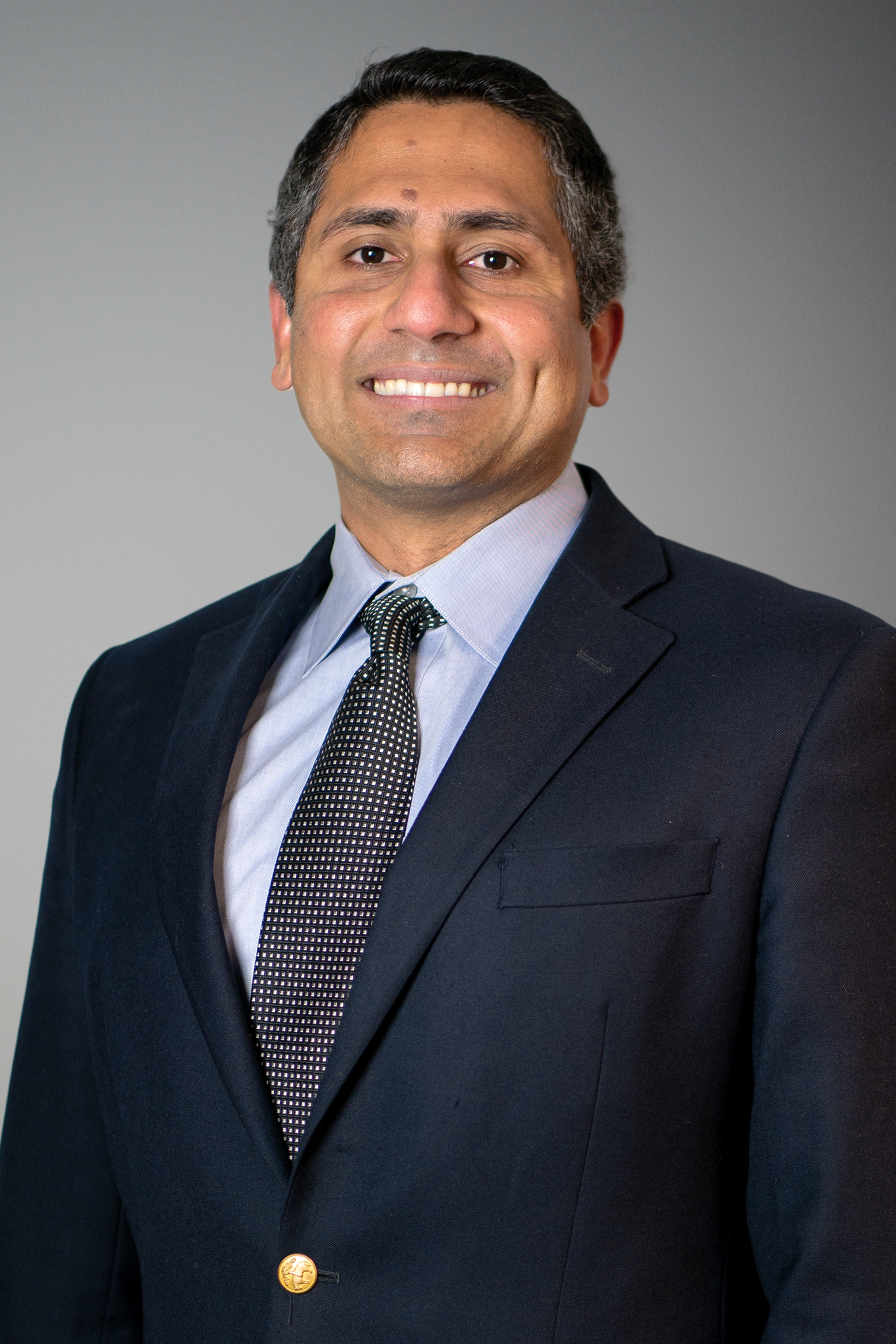
Dr. Abhimanyu (Manu) Gosain is a Senior Director for Institute of Wireless Internet of Things at Northeastern University ,co-Chair for the FCC 6G Technology Advisory Council, member of O-RAN alliance NextG research council, ATIS NextG Alliance, and Senior Advisor for NTIA and DoD OUSD R&E. He is in charge of setting strategic goals and the research agenda for a $100M public-private partnership for the NSF Platforms for Advanced Wireless Research (PAWR) program and $25M DARPA Colosseum program. He serves as a Board Member for the OpenAirInterface Software Alliance, Founding member for Magma Core Foundation, University representative for O-RAN Alliance, Telecom Infra Project, NextG Alliance and co-chair on organizing committee and program committees for 6GSymposium, EuCNC,IEEE InfoCom and ACM WinTech. His numerous professional publications and experience exemplify use-inspired basic research in the field of networking technologies such as 5G,6G, AI/ML, edge computing and Internet of Things. He is an IEEE Senior Member. He received his M.S. degree from Tufts University and M.B.A. from Boston University with High Honors.
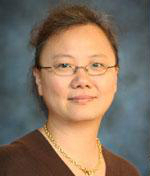
Dr. Yingbin Liang is currently a Professor at the Department of Electrical and Computer Engineering at the Ohio State University (OSU), and a core faculty of the Ohio State Translational Data Analytics Institute (TDAI). She also serves as the Deputy Director of the AI-EDGE Institute at OSU. Dr. Liang received the Ph.D. degree in Electrical Engineering from the University of Illinois at Urbana-Champaign in 2005, and served on the faculty of University of Hawaii and Syracuse University before she joined OSU. Dr. Liang's research interests include machine learning, optimization, information theory, and statistical signal processing. Dr. Liang received the National Science Foundation CAREER Award and the State of Hawaii Governor Innovation Award in 2009. She also received EURASIP Best Paper Award in 2014. She is an IEEE fellow.
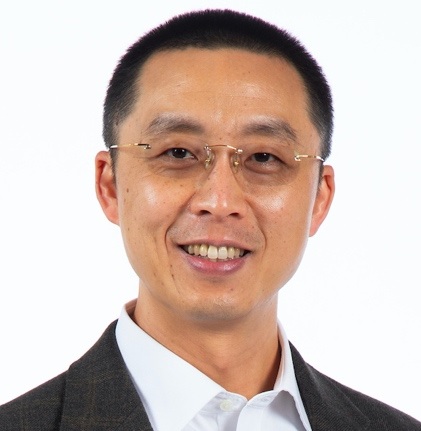
Hongwei Zhang is the Richardson Professor of Electrical and Computer Engineering and Director of the Center for Wireless, Communities and Innovation at Iowa State University. His research investigates modeling, algorithmic, and systems issues in wireless sensing and control networks (e.g., those in 5G and beyond) as well as their applications in control, XR, precision agriculture, and cyber-physical-human systems in general. He has led the development of open-innovation infrastructures for precision agriculture, connected and automated transportation, cellular networks, and IoT networks which have been used by researchers worldwide. For instance, he currently leads the $16M project ARA (https://arawireless.org) on rural broadband research, and he leads the ARA OTIC for O-RAN testing and integration (https://wici.iastate.edu/otic). His research results and system software have served as foundational elements of the DARPA sensor network systems “A Line in the Sand” and “ExScal” which, with its 200-node wireless mesh network and 1,200-node sensor network, was the world’s largest wireless mesh network and wireless sensor network deployed at its time. He is a recipient of the National Science Foundation CAREER Award, and Best Paper Awards from the 2023 ACM Workshop on Wireless Network Testbeds, Experimental evaluation and CHaracterization (WiNTECH) and 2021 IEEE International Conference on Network Softwarization (NetSoft). He currently serves as an Editor for the IEEE Transactions on Wireless Communications, and he served as an editor for IEEE Internet of Things Journal in 2020 and 2021. He was the Co-Chair of 2022 ACM WiNTECH and the Program Co-Chair of the 2019 IEEE Vehicular Networking Conference (VNC). He has also served on the program and/or organizing committees of conferences such as INFOCOM, ICCPS, IPSN, and ICC. More information about his work can be found from his website at http://www.ece.iastate.edu/~hongwei.
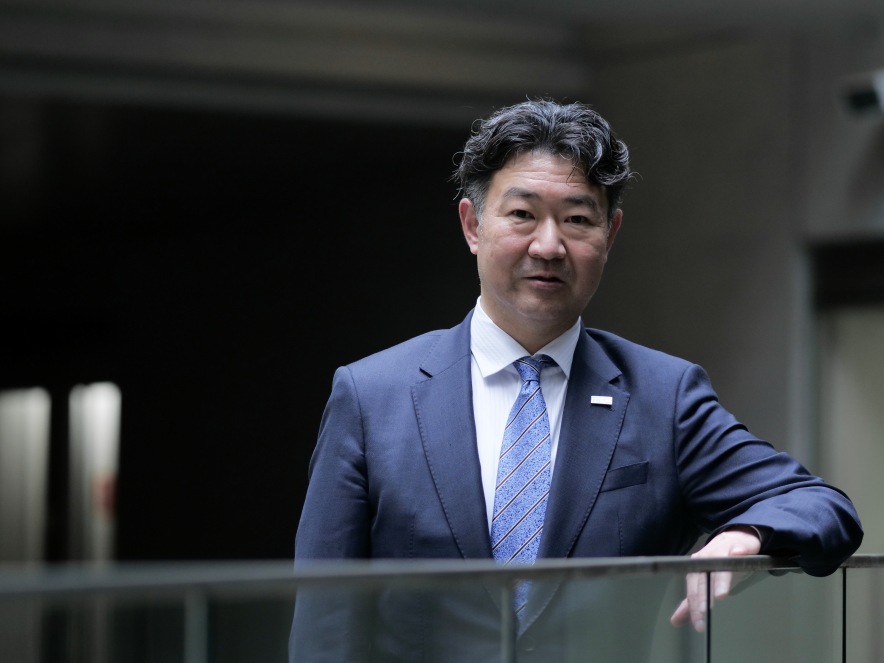
Dr. Akihiro Nakao received B.S. (1991) in Physics, M.E. (1994) in Information Engineering from the University of Tokyo. He was at IBM Yamato Laboratory, Tokyo Research Laboratory, and IBM Texas Austin from 1994 till 2005. He received M.S. (2001) and Ph.D. (2005) in Computer Science from Princeton University. He taught as an associate professor (2005-2014) and as a professor (2014-2021) in Applied Computer Science, at Interfaculty Initiative in Information Studies, Graduate School of Interdisciplinary Information Studies, the University of Tokyo.
He has served as Vice Dean of the University of Tokyo’s Interfaculty Initiative in Information Studies (2019-2021). In April 2021, he has moved to School of Engineering, the University of Tokyo (2021-present). Since April 2023, he has been serving as Head of Department of System Innovations, School of Engineering. He was appointed as an adviser to the President of the University of Tokyo (2019-2020) and has been as a special adviser to the President of the University of Tokyo (2020-present). He is serving as Director, Collaborative Research Institute for NGCI,(Next-Generation Cyber Infrastructure), the University of Tokyo (2021-present).
For social services, he has been playing several important roles in Japanese government and also at research societies. He has also been appointed Chairman of the 5G Mobile Network Promotion Forum (5GMF) Network Architecture Committee by Japanese government. He has been appointed as Chairman of 5G/Beyond 5G committee, Space ICT Promotion Initiative Forum, International Committee, and Beyond 5G Promotion Consortium as well (2020-present). From 2020 to present, he is a chair and advisor of IEICE technical committee on network systems (NS) as well as a chair of IEICE technical committee on cross-field research association of super-intelligent networking (RISING). He has been elected to become the president of Communication Society, IEICE, in 2024.
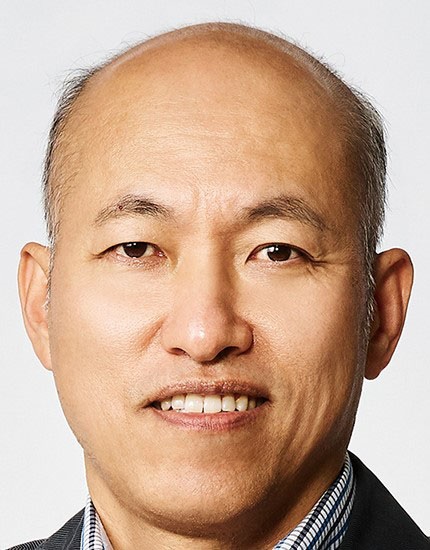
Dr. JongWon Kim received Ph.D. degree in Control and Instrumentation Engineering from Seoul National University, Seoul, Korea, in 1994. In 1994-1999, he was with the Department of Electronics Engineering at the KongJu National University, KongJu, Korea, as an Assistant Professor. From 1997 to 2001, he was visiting the Signal & Image Processing Institute (SIPI) of Electrical Engineering - Systems Department at the University of Southern California, Los Angeles, USA, where he has served as a Research Assistant Professor since Dec. 1998. From Sept. 2001, he has joined Gwangju Institute of Science & Technology (GIST), Gwangju, Korea, where he is now working as the dean of GIST AI Graduate School, which was established late 2019 as one of 10 government-sponsored AI graduate schools in Korea. He has been directing GIST SCENT (Super Computing cENTer) since 2008, where Top-500-listed DREAM-AI super computer has begun its operation of open HPC-AI computing services from Apr. 2023. Also he has been directing Networked Intelligence lab. from 2001, where networked systems topics are studied under the slogan of “Dynamic composition of AI-inspired cloud-native services employing programmable and virtualized resources”. Around these topics, he has co-authored more than 500 technical publications in academic journals and conferences. Dr. Kim is the senior member of IEEE, and the members of ACM, SPIE, KICS, IEEK, KIISE, and KIPS. He has been serving and served as the editorial board member of Elsevier JVIS, Elsevier ICT Express, KIISE, KIPS, and KICS Journals. He has served as various committee members of international and domestic conferences/workshops of IEEE, ACM, SPIE, and others. Also, he has/had been involved with several domestic and international working group activities based on the global R&E networks, including Technology Area director, HDTV and Cloud WG chairs of APAN (Asia-Pacific Advance Network), Steering Group member of AsiaFI (Asia Future Internet), Forum chair and Testbed WG chair of FIF (Future Internet Forum in Korea), Forum operation chair of MEC (Multi-access Edge Computing in Korea), and Forum vice-chair of Korea Super Computing.
Panel #2: 6G research – are we there yet? (July 30, 2024)
Moderator: Ali Khayrallah, Senior Technical Advisor, Advanced Technology Group, Ericsson, USA
Panelists:
Ian C. Wong, Director of RF and Wireless Architecture, VIAVI Solutions
Nada Golmie, Fellow, Communications Technology Laboratory, NIST
Alhussein Abouzeid, Program Director, NSF
This panel will speculate on what come next in the research towards 6G in the US. Our baseline is the the NSF RINGS program (Resilient and Intelligent Next-Generation Systems), a flagship partnership led by NSF, with DoD, NIST, and 9 industry partners: Apple, Ericsson, Google, IBM, Intel, Microsoft, Nokia, Qualcomm, and VMware. RINGS program emphasizes the system aspects, and projects address topics from two main themes: Resilient network systems, and enabling technologies. As RINGS is approaching its third and last year, discussions are under way to define a follow-up program, so the timing of this panel is serendipitous, and will hopefully enrich that discussion.
RINGS is one of several US research programs that address the future of mobile networks. Notable initiatives include: The recently announced NSF NewSpectrum program investigates new spectrum access, management, and enabling technologies. NSF FuSe (Future of Semiconductors) and its follow-up Fuse2 focus on semiconductor research, with mobile as one application. The DoD MEC (Microelectronics commons) hubs program enables lab-to-fab chip development, with 5G/6G as one its themes. CUBiC (Center for Ubiquitous Connectivity) is a part of the SRC/DARPA JUMP (joint university microelectronics program) 2.0, and focuses on the computation-communication gap. AI-EDGE is an NSF AI Institute aiming to design the next generation of edge networks for 6G and beyond.
With this rich background in mind, our panel will try to address the key questions that help shape the next 6G program or programs. Specific topics include: What major changes or trends do we identify in the past few years that should inform the next program. What advances from RINGS or elsewhere should we latch onto and promote further. What new verticals or use cases do we foresee driving 6G, and how should research address them. What critical gaps do we see thus far that require more attention in the next program.
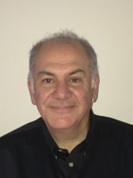
Dr. Ali Khayrallah is senior technical advisor with the Advanced Technology Group at Ericsson in Santa Clara, CA. He has been with Ericsson in various research positions, in Santa Clara, CA, where he led a team shaping future wireless technology, and earlier in Research Triangle Park, NC. His current focus is on 6G in the US, and partnering with government, academia and industry to energize research towards 6G and beyond. His external activities include NSF partnerships on wireless research, ATIS Next G Alliance, FCC TAC, and 5G Americas. He has contributed to the development of 5G, 4G, 3G, Bluetooth, mobile satellite, land mobile radio etc. Previously, he was on the faculty of the University of Delaware. He received a Ph.D. and an M.S. from the University of Michigan, Ann Arbor, and a B.Eng. from the American University of Beirut. He holds 120+ patents and received the Ericsson inventor of the year award.

Dr. Ian C. Wong is currently the Director of RF and Wireless Architecture reporting to the CTO at VIAVI Solutions, where he is leading RF and wireless technology strategy, architectures, and standards. He is the co-chair of the Test and Integration Focus Group (TIFG) in the O-RAN Alliance, and VIAVI’s representative at the full member and steering groups of the NextG Alliance. He is also the technical lead in the VIAVI Automated Lab-as-a-Service for Open RAN (VALOR) Test and Evaluation proposal which was awarded $21.7M by the NTIA Public Wireless Supply Chain Innovation Fund’s first Notice of Funding Opportunity.
From 2009 - Aug 2020, he was with NI (formerly National Instruments, since acquired by Emerson) where his last position was Section Manager of Wireless Systems R&D where he led the development of real-time end-to-end 5G wireless test and prototyping systems, and managed the company’s 3GPP wireless standards and IP strategy. From 2007-2009, he was a systems research and standards engineer with Freescale Semiconductor where he represented Freescale in the 3GPP LTE standardization efforts. He is a senior member of the IEEE, was the Director of Industry Communities for IEEE Communications Society 2016-2019, and was the Industry Program Chair for IEEE Globecom 2014 in Austin.
Dr. Wong is lead editor of the book “Open RAN: The Definitive Guide” published by Wiley/IEEE in 2023, co-authored the book “Resource Allocation for Multiuser Multicarrier Wireless Systems” published by Springer, numerous patents, standards contributions, and IEEE journal and conference publications. He was awarded the Texas Telecommunications Engineering Consortium Fellowship in 2003-2004, and the Wireless Networking and Communications Group student leadership award in 2007. He received the MS and PhD degrees in electrical engineering from the University of Texas at Austin in 2004 and 2007, respectively, and a BS degree in electronics and communications engineering (magna cum laude) from the University of the Philippines in 2000.

Dr. Nada Golmie (a Fellow of IEEE) received her Ph.D. in computer science from the University of Maryland at College Park in 2002, and her B.S. and M.S. degrees in Computer Engineering from Toledo University in 1992 and Syracuse University in 1993 respectively. Since 1993, she has been a research engineer at the National Institute of Standards and Technology (NIST). From 2014 until 2022, she served as the chief for Wireless Networks Division at NIST. She is a NIST Fellow in the Communications Technology Laboratory. Her research in wireless communications systems and protocols, propagation measurement and modeling, next generation wireless, and millimeter-wave communication systems led to over 200 technical papers presented at professional conferences, journals, and contributed to international standard organizations and industry led consortia. She is the author of “Coexistence in Wireless Networks: Challenges and System-level Solutions in the Unlicensed Bands,” published by Cambridge University Press (2006). She leads several projects related to the modeling and evaluation of future generation wireless systems and protocols and serves as the chair of the NextG Channel Model Alliance.
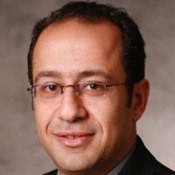
Dr. Alhussein A. Abouzeid (Program Director, NSF) is a Professor with the Electrical, Computer and Systems Engineering Department at Rensselaer Polytechnic Institute where he has been since 2001. He received Ph.D. and M.S. degrees from University of Washington, Seattle, in 2001 and 1999, respectively, and the B.S. degree with honors from Cairo University, Cairo, Egypt, in 1993, all in electrical engineering. From 2014 to 2018 he held a summer visiting Professor appointment with the Center of Wireless Communications, Department of Electrical Engineering, University of Oulu, Finland. From 2008 to 2010 he served as Program Director in the Computer and Network Systems Division of the U.S. National Science Foundation, where he co-directed the NeTS program and co-founded the EARS program for radio spectrum efficiency. He held appointments with Allied Signal (now Honeywell) Redmond, WA, Hughes Research Labs (HRL), Malibu, CA and Alcatel Telecom. He was the founding director of WiFiUS in 2011, an international NSF-funded virtual institute on wireless systems research, composed of 58 principal investigators from 29 institutions in the US and Finland. He received the Faculty Early Career Development Award (CAREER) from the US National Science Foundation in 2006, and the Finnish Distinguished Professor (FiDiPro) Fellow award from Tekes (now Business Finland), 2014-2018. He has served/serves as an Associate Editor for Elsevier Computer Networks, IEEE Transactions on Wireless Communications, and IEEE Transactions on Mobile Computing. He is a member of IEEE and ACM, and has served on the organizing and technical committees of several conferences.


